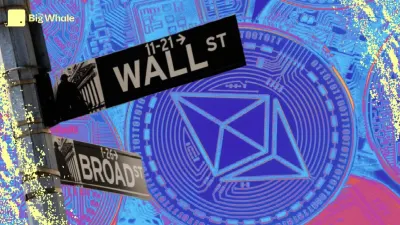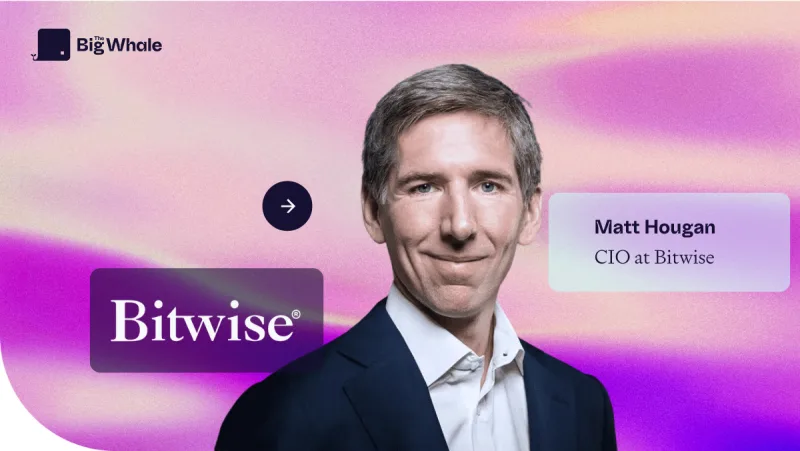TBW - United States: SEC Chair wants to move Wall Street onchain

In an unprecedented speech, the new chairman of the SEC, Paul Atkins, on Thursday unveiled the "crypto project", an ambitious set of measures aimed at propelling the United States to the rank of world leader in digital finance.
It was a speech that could well mark a historic turning point in the regulation of crypto-assets. On Thursday, Paul Atkins, chairman of the Securities and Exchange Commission (SEC), unveiled the outlines of his "Project Crypto", an initiative whose stated ambition is nothing less than to "migrate US financial markets onchain", i.e. onto public blockchains.
Presented at a much-anticipated speech in Washington, the project marks a radical change of tone for the world's most influential regulator. Hitherto seen as hostile or at best skittish towards the crypto ecosystem, the SEC is changing its tune, and not half.
According to Paul Atkins, who succeeded Gary Gensler earlier this year, "Project Crypto" aims to "modernise the rules of the US financial markets so that they can take full advantage of blockchain technologies." The announcement follows on from the report by the President's Working Group, published the previous day, and also involves the Treasury and the Commerce Department.
Here are the key measures unveiled:
👉 The majority of tokens will no longer be considered as "securities", in other words securities. This is a major clarification that will remove a legal uncertainty that has weighed on the ecosystem for years.
👉 The "decentralisation" criterion will no longer be decisive in classifying an asset. A major break with the SEC's current line, criticised for being vague.
👉 ICOs and airdrops will no longer be banned by default, but will be subject to separate regulatory treatment, according to Paul Atkins.
👉 Unregulated tokens will be able to be traded on the same platforms as traditional financial securities. A major step forward, welcomed by many entrepreneurs in the sector.
👉 Developers of open source software will benefit from strengthened protections. According to Paul Atkins, the idea is to avoid a repeat of what happened to the developers of Tornado Cash. Alexey Pertsev spent more than 18 months in prison in the Netherlands.
👉 The procedures for obtaining a licence to operate as an exchange or broker will be simplified.
👉 Finally, an "innovation exemption" will allow projects in the development phase to experiment before entering the traditional regulatory framework.
An ultra-favourable political context
This speech comes at a key political moment for the United States: just two weeks after the passage of the Genius Act, a law framing stablecoins and aiming to make the United States the benchmark jurisdiction for digital assets denominated in dollars. The Act, which has been hailed by the industry, provides a clear framework for issuers such as Circle and Paxos, and lays the foundations for a stablecoin market that is fully integrated into the financial system.
The SEC's shift in direction is also part of this dynamic. Paul Atkins intends to build on the PWG's recommendations and has tasked Commissioner Hester Peirce, a respected figure in the ecosystem and nicknamed "Crypto Mom", with leading a Crypto Task Force. This will be responsible for drawing up the concrete proposals, which will be put out to public consultation over the coming months.
The overall aim of this policy is to fully integrate digital assets into the structure of existing markets, without seeking to isolate them. "Onchain systems must no longer be stifled by redundant or unnecessary regulation," said Atkins.
He calls for an overhaul of the rules to allow capital markets to co-exist with DeFi (decentralised finance) protocols such as Aave, Morpho or Euler, and to treat digital commodities, collectibles, stablecoins and other crypto asset classes differently.
A pivotal moment for Europe (and for the world)
With this policy, the United States is further asserting its leadership in digital finance. In Europe, some people are even worried that the Old Continent could fall behind. "Everything has changed in 12 months in the United States and nobody seems to have understood it in Europe. It's a bit worrying", explains one crypto entrepreneur.
In the sights of many players in the sector: MiCA. Adopted a year ago, the European regulations (Stablecoins, Exchange licences, etc.) still need to be completed with a second section, particularly on decentralised finance. "It would be good if we could take advantage of this to relax the rules and provide greater visibility," says another European crypto player. The debates promise to be lively.



